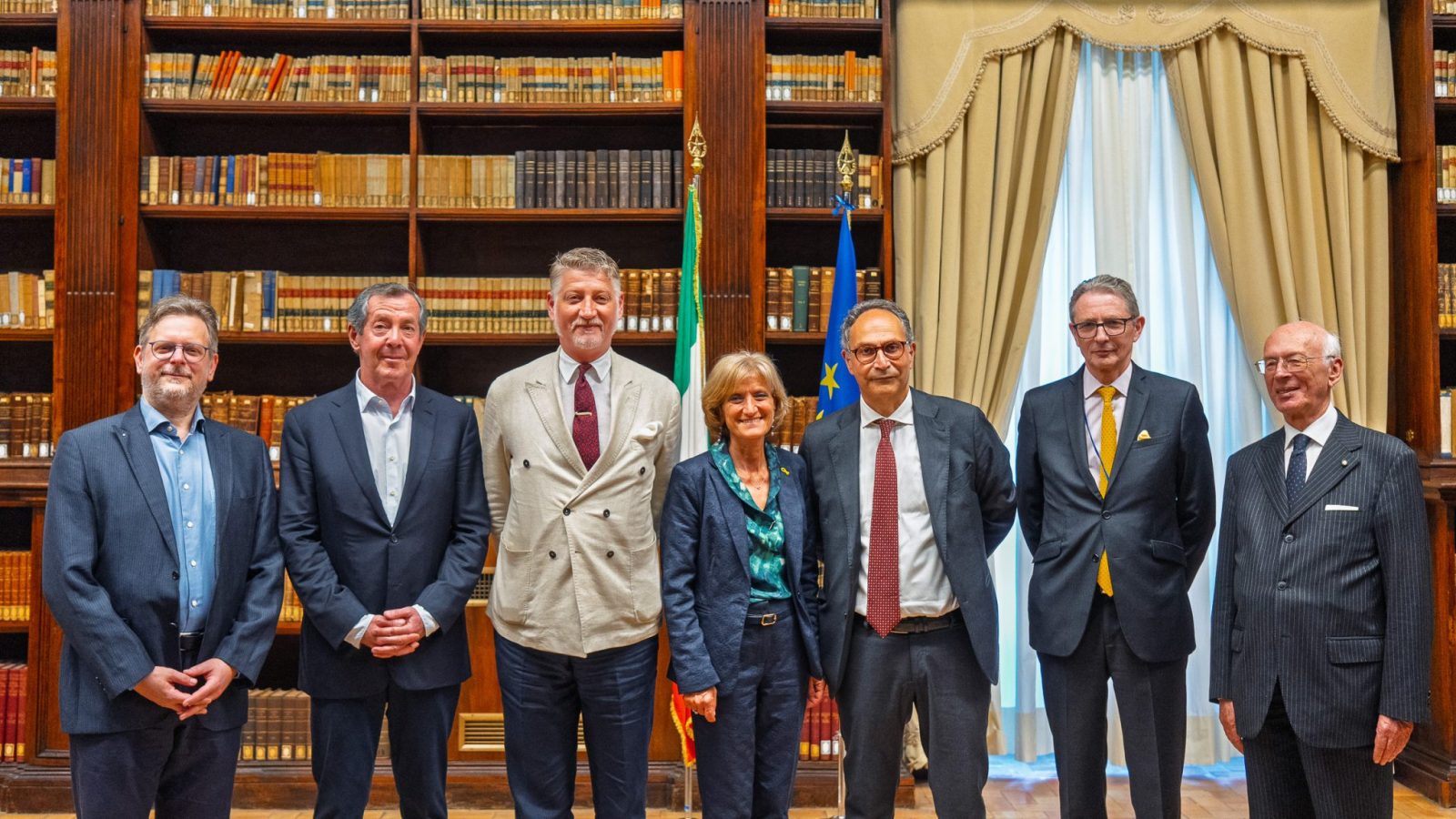PISA – Minister of Culture, UCEI agree to restore ancient Jewish cemetery

More than a hundred antique gravestones need to be restored, the symbolic Porta del Leone (Lion’s Gate) to be reopened and a reception centre for tourists to be built. These are the main points of the agreement between the Italian Ministry of Culture and the Union of Italian Jewish Communities for the restoration and enhancement of the Jewish cemetery in Pisa, Tuscany. The project aims to return this landmark of Pisa and Italian Jewish history to its former glory and public function.
The protocol was signed in Rome on May 12 by Luigi La Rocca, head of the Ministry of Culture’s Cultural Heritage Protection Department, and Noemi Di Segni, president of the UCEI. At the meeting, the Minister for Culture, Alessandro Giuli, received a delegation from the European Association for the Preservation and Promotion of Jewish Culture and Heritage (AEPJ), the Jewish Community of Pisa, and the Foundation for Italian Jewish Cultural Heritage. “Promoting Jewish culture is being on the right side of history. The Ministry is on your side, now and forever,” said Giuli. Di Segni replied that the Ministry is “an essential benchmark for us. We appreciate the concrete and constant attention being given to safeguarding our patrimony.”
The cemetery of Pisa, which has been in use for centuries, is in a unique location. Overlooking the famous Piazza dei Miracoli (Square of Miracles), it is separated from it by a high wall and the Porta del Leone gate, which has not been opened for 400 years. Reopening it again is the most symbolic aspect of the entire project: It represents a physical and symbolic reconnection between the past and the present, memory and the city, and the history of the Jewish community with the urban and cultural fabric of Pisa. Andrea Gottfried, president of the Jewish community of Pisa, explained to Pagine Ebraiche.
“This is not something that has been imposed by a higher power, but stems from collaboration with the Superintendence of Fine Arts. And since the beginning, the extraordinary historical value of this place has been recognized.”
The first step of the project is the restoration of the gravestones, many of which are buried underground. “There is about a hundred of them, some dating back to 1600. They are archaeological testimonies of our millenary presence.” But the most profound meaning is connected to the closed gate that currently separates the cemetery from the famous square. Reopening it is not just an urbanistic act. It’s a political act in the highest sense of the term. It means recreating a connection with the city, the Diocesan Curia and the millions of tourists who pass by every year without knowing what lies behind the wall.”
The third step of the project involves the requalification of the guardian’s house, which will be transformed into a reception and information centre. This small building, located between the wall and the street, will serve as a contact point where the history of the cemetery and the Jewish community of Pisa will be shared. “Every year, 3 or 4 million people walk past that place, yet few of them know of the existence of one of the oldest Jewish cemeteries still in use.”
The agreement stipulates that the works should be finished by 2028. A technical commission comprising the Ministry, the Superintendency, UCEI, the Pisa Foundation, the City of Pisa, Opera Primaziale (a non-profit organisation that manages the square) and Alexander Knaster (owner of the Pisa Calcio football team) has been established to support the project and ensure that the necessary budget is met.
Translated by Rebecca Luna Escobar, student at the Advanced School for Interpreters and Translators of the University of Trieste, trainee in the newsroom of the Union of the Italian Jewish Communities — Pagine Ebraiche.
